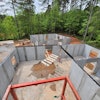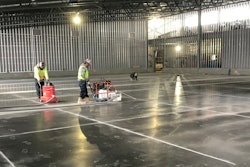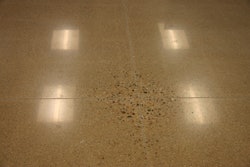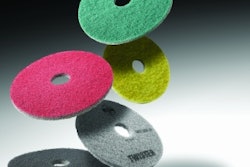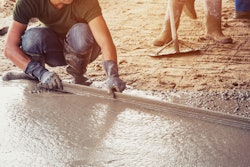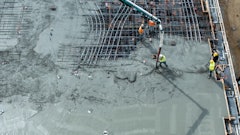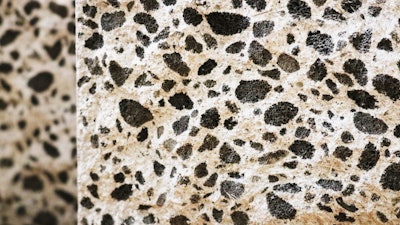
Early September 30, a building material developer and general contractor out of Germany published an announcement with a simple headline: "DETON instead of concrete: Sustainable building material revolutionises construction industry."
The news includes a few claims about the material:
- More environmentally and resource efficient than concrete
- Reducing the CO2 footprint in the construction industry
- First project development with DETON planned for 2021
- General building authority admission is expected for 2023
According to the announcement, DETON looks will establish a sustainable alternative to conventional concrete within the construction industry, a building material also named DETON. In the upcoming months, several project developments will be realised in various German federal states where DETON will be used via individual case approvals. In 2023, the general building authority admission is to be granted via the German Institute for Building Technology. In the long term, the company aims to develop a DIN standard for DETON.
Founded in 2017, the DETON group of companies is dedicated to innovative building materials development as well as 3D concrete modelling. The CO2-reduced cementitious building material DETON is mixed with organic fibres and natural resins in the manufacturing process and produces 100% less CO2 than conventional concrete. The patent for Germany, Europe and worldwide use has already been applied for. DETON Construction GmbH carries out construction projects throughout Germany as a general contractor.
In order to reduce impact the cement industry has on climate change, which represents 8% of the global greenhouse gas emissions, Nail Förderer, founder and CEO of DETON wants to "transform the entire construction industry, starting with concrete." He sees DETON as a climate-friendly alternative that meets all the demands of modern project developments.
The release states that due to its ecological composition, DETON should save up to 70% of cement minerals.
How It Works
In addition to classic cement, a combination of mineral and organic adhesives as well as recycled fillers are added to the building material during the production process. This saves 100% of the CO2 emissions and thus provides DETON with a neutral CO2 balance. The mineral building material is recyclable.
Thanks to the absence of steel reinforcement and petroleum-based insulating and sealing materials, DETON [was designed to be ] an ideal building material for the circular economy. Despite its novel composition, the patented mixing process also ensures optimal thermal insulation of the material in addition to water impermeability.
"DETON's goal is not only to offer a clean concrete alternative. We are working to make the entire value chain more ecological and profitable," explains Förderer. "We are also developing new equipment in connection with 3D modelling processes that implement the topic of material development and additive manufacturing at the save time."
Reportedly, DETON does not require the addition of bitumen, and thanks to the material's inherent insulating properties, it enables the elimination of environmentally harmful technologies such as the commonly used composite thermal insulation systems.

